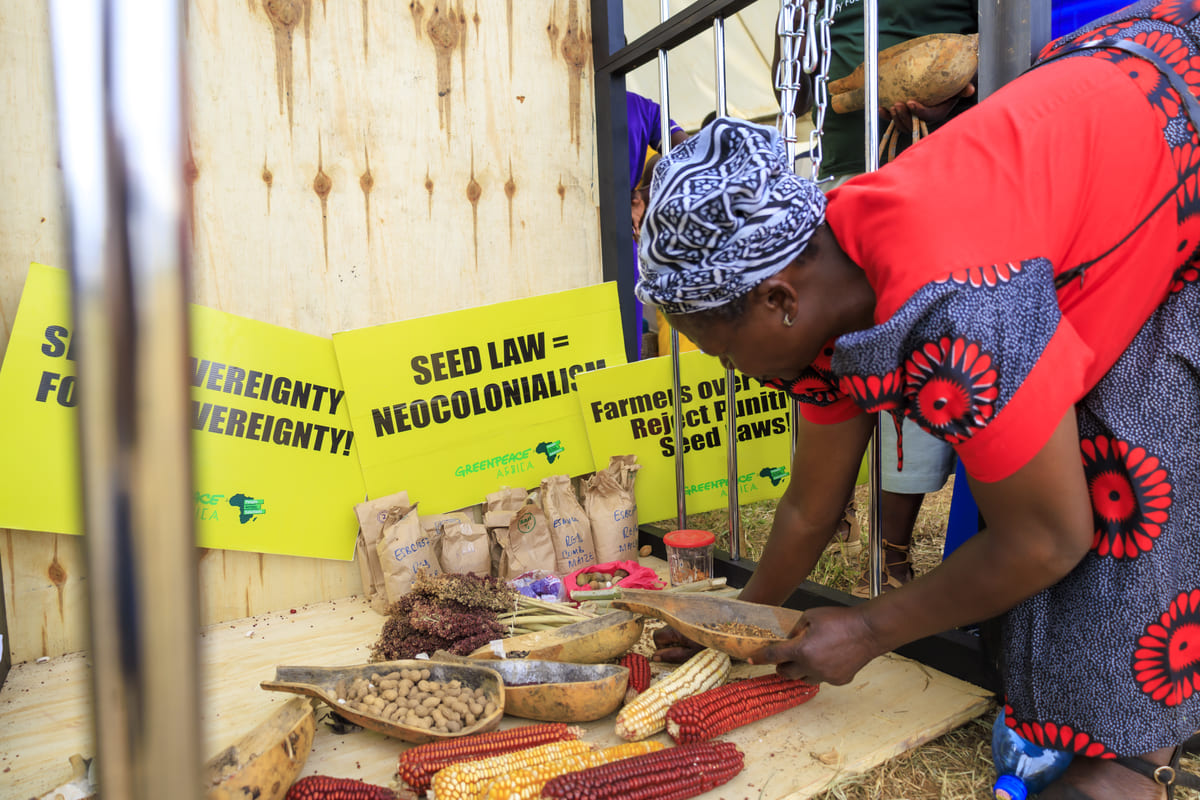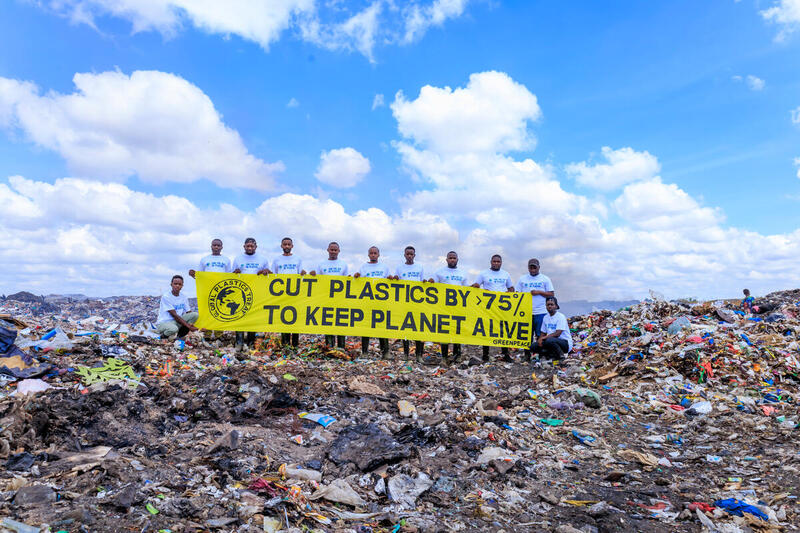A punitive law in Kenya punishes farmers with a jail term of up to two years or a fine of 1 million shillings (about 6800 USD) for sharing indigenous seeds without certification or registration. As we mark World Food Day, Greenpeace Africa is calling on the Kenyan government to recognize the urgent need to amend this act to protect our indigenous farmers and safeguard our food future.
The Seed and Plant Varieties Act Cap 326 is meant to regulate seed usage. Scandalously, it carries sections that threaten to imprison smallholder farmers for sharing, selling, or exchanging indigenous seeds.
“Indigenous seeds, resilient by nature, are the cornerstone of crop diversity and our defense against water and food scarcity and changing climate. Embracing them paves the way for sustainable food systems. We should actively encourage indigenous seed sharing, not restrict it,” said Greenpeace Africa’s Food Campaigner, Elizabeth Atieno.
This year’s World Food Day theme is “Water is life, Water is food, leave no one behind.” Indigenous seeds typically require less water to flourish, even in water-stressed conditions. “It is important to address water scarcity issues by harnessing the power of indigenous seeds to ensure no community is left behind in the fight against hunger and malnutrition. If the Kenyan government maintains restricted access to indigenous seeds, our republic will succumb to neocolonial corporations that seek to ensure the resilience of their profits instead of the resilience of our communities,” stressed Atieno.
Section 10 subsection 4 of this Act punishes farmers with a two-year jail sentence or a fine of Kshs. 1,000,000 if they are found selling uncertified seeds or if they are not registered as seed merchants. This act essentially punishes the African tradition of sharing seeds and puts at risk thousands of farmers across rural Kenya who feed us with some of the healthiest, most organic foods that we can set at the dinner table.
“This punitive law paints a picture of a government that seems to prioritize profit over the well-being of its people. Greenpeace Africa calls for the amendment of the punitive seed laws. The government should urgently stop the corporate capture of our seeds and recognize farmers’ rights to sell, share, and exchange indigenous seeds without fear of punitive repercussions, added Atieno.
If implemented, the law could have devastating consequences on the already dwindling food production systems and shrinking diet options in the country, especially in the Arid and Semi-Arid areas (ASALs). Restricting seed sharing undermines diversity and gives an unfair advantage to large-scale corporate farmers whose products are primarily for profit and not nutrition and whose farming practices are decidedly harmful to an already sick environment we are fighting to save. The act will also encourage dependency on commercial seed merchants and increase the cost of farming for communities that are already financially challenged.
ENDS
About Greenpeace Africa
Greenpeace Africa is a growing movement of people acting for the protection of the environment. Our campaigns use peaceful, creative confrontation to expose environmental injustices around the world and develop solutions for a green and peaceful future.
For more information/media enquiries, contact:
Ferdinand Omondi
Greenpeace Africa Communications and Story Manager
e-mail: [email protected]
Mobile: +254 722 505 233
Twitter: @Ferdyomondi



